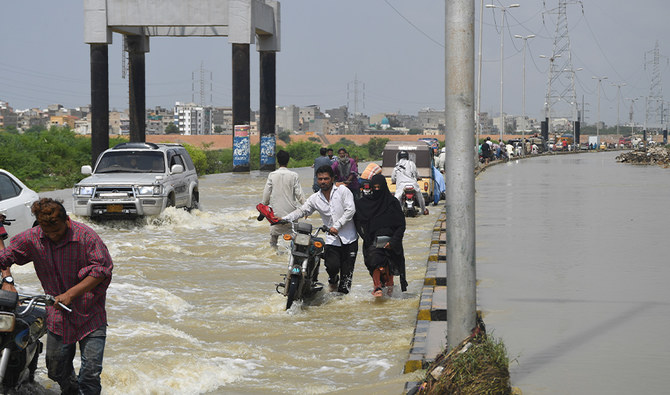Pakistan and Sudan floods: the Role of Human Agency

Human agency and poor choices exacerbated the recent floods in Pakistan and Sudan, according to a virtual panel held on Sept. 21. The panel was moderated by Indee Thotawattage, student life specialist at Northwestern University in Qatar, and featured panelists from the two countries, as well as Anto Mohsin, professor of science and technology studies at NU-Q.
The effects of natural disasters are determined by the level of preparation, farsightedness, urban planning and efficiency in governance, the panelists told the audience.
Human decisions such as building houses in disaster-prone areas, ineffective early warning systems and not having emergency evacuation routes worsen the impact of natural hazards. The effects are compounded because of inadequate human agency to prevent consequences, according to Mohsin.
“A growing number of interdisciplinary disaster studies have shown that there is no such thing as ‘natural’ disasters. Environmental historians have studied the role and place of nature in human life and long been arguing that nature and culture shape one another,” Mohsin added.
The panelists also argued that human agency factors such as climate change and unfair and ineffective relief distribution exacerbate the consequences of a disaster. One of the biggest concerns is the allocation of disaster relief resources to the affected population. Most of the resources are channeled only towards the center, not the periphery, and this makes life for disaster victims more difficult.
“The reality is that the floods happened in 16 states of Sudan… the states that were most affected were outside the capital,” said Abdul Gamil, who is from Sudan and a NU-Q alumnus from the Class of 2012. He added that there were less efforts and very few resources allocated to the peripheral regions.
Although flooding is a regular natural occurrence during the monsoon season in Karachi, Zeest Marrium, a sophomore at NU-Q, said there were no precautionary actions taken in terms of planning and preparation to mitigate its impact.
“This compels me to think if this flood came as a natural disaster, or maybe it came as an inevitable consequence of human decision, perhaps agency,” said Zeest.
The panelists remarked that media users and professionals, the international community and local governments can provide a great deal of support from their side to create transparency and ensure good governance for a more sustainable disaster support system.
“Once the conversation turns from support or a band-aid, we need to start thinking of a long term [solution],” said Gamil.












